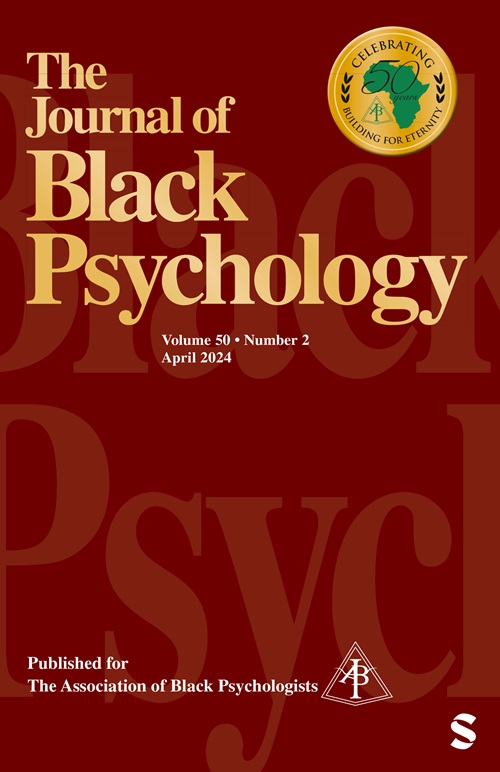以非洲人为中心的精神是非裔美国人与特定形式种族主义相关心理症状的缓冲器
IF 2.2
3区 心理学
Q2 PSYCHOLOGY, MULTIDISCIPLINARY
引用次数: 0
摘要
本研究旨在研究以非洲为中心的精神信仰对特定形式的种族主义对 201 名非裔美国成年人心理结果的影响的调节作用。假设以非洲人为中心的灵性会影响与种族主义相关的心理结果的严重程度,因此,更多地使用这种策略将与种族主义暴露形式相关的较轻的心理症状有关。为检验研究假设,我们进行了层次回归分析。具有统计学意义的交互效应显示,以非洲为中心的精神疗法使用率低与躯体化、抑郁和强迫症状的严重程度有关,与文化和制度上的种族主义暴露程度增加有关。在预测强迫症和躯体化症状时,个人种族主义和以非洲为中心的精神信仰之间也存在显著的交互作用,这表明,更多地使用这种策略与症状的增加有关,而症状的增加与接触这种形式的种族主义的增加有关。总体研究结果表明,大量使用以非洲人为中心的精神信仰并不是一种有效的应对策略,不能管理所有形式的种族主义。本文章由计算机程序翻译,如有差异,请以英文原文为准。
African-Centered Spirituality as a Buffer of Psychological Symptoms Related to Specific Forms of Racism for African Americans
The current study was designed to examine African-centered spirituality as a moderator of the effects of specific forms of racism on psychological outcomes for a sample of 201 African American adults. African-centered spirituality was hypothesized to influence the severity of racism-related psychological outcomes, such that greater use of this strategy would be associated with less severe psychological symptoms in relation to forms of racism exposure. Hierarchical regression analyses were performed to test the study hypotheses. Statistically significant interaction effects revealed that low use of African-centered spirituality was associated with greater severity in somatization, depression, and obsessive-compulsive symptoms in relation to increased exposure to cultural and institutional racism. Significant interactions were also revealed between individual racism and African-centered spirituality in predicting obsessive-compulsive and somatization symptoms, which suggested that greater use of this strategy was associated with an increase in symptoms in relation to increased exposure to this form of racism. The overall findings suggest that high use of African-centered spirituality is not an effective coping strategy to manage all forms of racism.
求助全文
通过发布文献求助,成功后即可免费获取论文全文。
去求助
来源期刊

Journal of Black Psychology
PSYCHOLOGY, MULTIDISCIPLINARY-
CiteScore
8.00
自引率
5.80%
发文量
22
期刊介绍:
The Journal of Black Psychology publishes scholarly contributions within the field of psychology toward the understanding of the experience and behavior of Black populations. This includes reports of empirical research and discussions of the current literature and of original theoretical analyses of data from research studies or programs. Therefore, the Journal publishes work in any of the areas of cognition, personality, social behavior, physiological functioning, child development, education, and clinical application, in addition to empirical research and original theoretical formulations outside traditional boundaries, all integrated by a focus on the domain of Black populations and the objective of scholarly contributions.
 求助内容:
求助内容: 应助结果提醒方式:
应助结果提醒方式:


